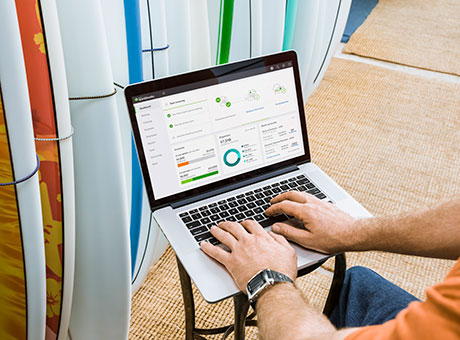Landlords and property owners can typically write off a number of expenses when they file their income tax returns with the Canada Revenue Agency (CRA). But making the most of your tax credits and deductions means you need to know how to account for spending ahead of time and plan accordingly. Since the CRA lets your company claim all the reasonable expenses you accrue in the process of earning income through its rental properties. This makes good record keeping essential to minimize your tax bill and maximize your profits.

Taxes and Tips for Landlords and Property Owners
General Tax Credit Categories
The term tax credit refers to amounts of money you can claim or deduct to offset your tax liability, or what you owe the CRA for the profits on your rental income or capital gains on properties you sell. Costs you can claim on your CRA tax return as a landlord or property owner fall into two general categories — current expenses and capital expenses. Current expenses include costs that typically reoccur after a short time period, while capital expenses involve costs that add value to one of your properties. For instance, you can claim monthly insect treatments as current expenses and a new swimming pool as a capital expense.
Tax and Expense Tracking Software Deductions
Keeping adequate accounting and tracking records for various properties proves one costly aspect of investing in rental properties. In the digital age, you can make use of technology to cut down on some of these costs by using accounting software for landlords and property owners such as QuickBooks Online. These flexible apps make it simple to document the expenses you incur as part of income generation for your small business, including income from property receivables. As an added benefit, you can write off all the subscription fees you pay for rental income accounting software and costs your company incurs for bookkeeping and auditing services at tax time.
Transportation and Vehicle Expense Write-Offs
Typically when you own and manage properties, you spend a great deal of your time and money travelling to properties to perform maintenance or meet with tenants or service personnel. This can sometimes include the amount of money employees’ spends on transportation if you designate them certain responsibilities.
Claiming this motor vehicle deduction on your tax returns requires you to own only one single-family rental property from which you generate income, perform all or at least some of the required maintenance on the property, and require the vehicle to move tools and other materials to the property. If your company owns two or more rental properties, you can deduct transportation and vehicle expenses for observing repairs, collecting rent, and performing other managerial responsibilities.
Expenses related to the care and maintenance of your vehicle remain subject to restrictions in terms of write-offs. But you can receive tax deductions for gas, oil, repairs, insurance, licencing and registration fees, loan interest, and leasing costs. You can only claim these deductions when your company uses your personal vehicle to generate revenue for business.
Depreciation Deductions for Property Owners
As noted above, you incur capital expenses when you spend money to significantly improve a piece of property or increase its value in a substantial way. You can also claim capital costs for the purchase price of the property itself and all the legal fees associated with the purchase. Depreciation of individual properties against your company’s income typically proves a large tax deduction for landlords in terms of capital costs. While this move helps you protect and bolster your company’s cash flow when you first start your business, you ultimately pay taxes once you sell the property and pay capital gains tax on your profit.
Office Expenses for Rental Property Management
If you operate out of an office on or near one of your company’s rental properties, you can deduct the cost of supplies to the office. This generally includes small expenditures for basic office supplies and the computer equipment you need to track your income and expenses.
Legal Fee Write-Offs for Landlords
As a landlord or property owner, you can deduct legal fees you accrue to prepare and verify leases or rental agreements. Your company may also run into situations where legal fees add up in the pursuit and collection of overdue and unpaid rent costs, and you can also deduct these fees at tax time. Keep in mind that you can’t deduct legal fees you incur on the purchase of a rental property from your gross rental income. Instead, simply allocate the fees between the land the building stands on and the building itself, and then add them to the respective cost of each.
Small rental property businesses typically incur lots of fees, charges, and general expenses for landlords and property owners. Knowing how to keep track of these expenses can help you save lots of money when you file your tax return with the CRA. With that in mind, it pays to keep up with all your available deductions by making use of robust accounting software. QuickBooks Online can help you maximize your tax deductions. Keep more of what you earn today.


